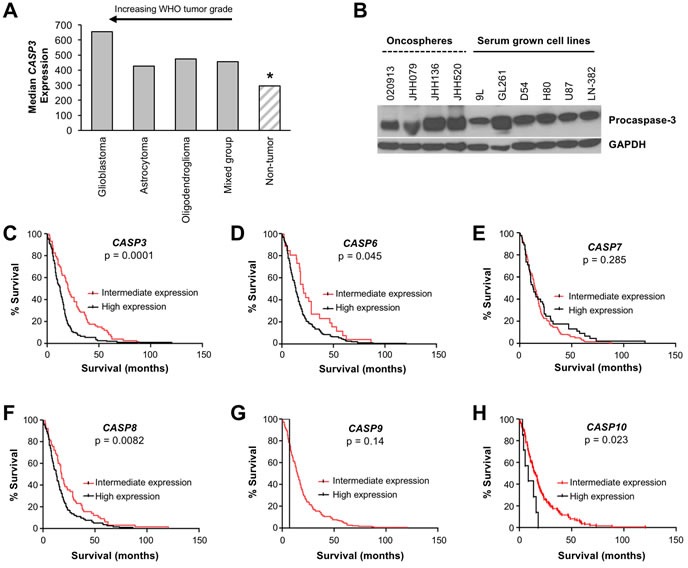Figure 1. Procaspase-3 is expressed in brain tumors and its expression is a prognostic factor for survival of glioblastoma patients.

A. Analysis of CASP3 expression in the NCI REMBRANDT database demonstrates that CASP3 is more highly expressed in brain tumors compared to non-tumor tissues (*, p < 0.001 for pairwise comparison between non-tumor and glioblastomas or astrocytomas or oligodendrogliomas). Highest expression of CASP3 was observed in glioblastoma, compared to lower expression in low-grade astrocytomas and oligodendrogliomas. B. Immunoblotting demonstrates the presence of robust procaspase-3 expression in glioblastoma cell lines. C.-E. Executioner caspases: CASP3, CASP6, and CASP7. C. Glioblastoma patients with high expression of CASP3 survived significantly shorter (n = 107; median = 12.5 months) compared to those with intermediate CASP3 levels (n = 74; median 20.3 months; p = 0.0001). D. High expression of the CASP6 gene (n = 155) correlated with poorer prognosis when compared to intermediate expressors (n = 26) at a level of mild significance (p = 0.045). E. Expression of CASP7 did not correlate with survival (n = 45 for high expression, n = 136 for intermediate expression). (F-H) Initiator caspases: CASP8, CASP9, and CASP10. F. Glioblastoma patients with high CASP8 expression survived significantly shorter (n = 116; median = 13 months) compared to those with intermediate CASP8 levels (n = 65; median 18 months; p = 0.0082). G. Expression of CASP9 was primarily unchanged across the glioblastoma patients except one patient out of 181 exhibiting high caspase 9 expression and a shortened survival (p = 0.14). H. High expression of the CASP10 gene (n = 7 for high expression, n = 137 for intermediate expression) correlated with poor prognosis at a level of mild significance (p = 0.023).
